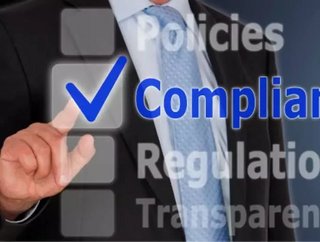7 top trends in energy and utility compliance

Click here for the latest issue of Energy Digital magazine
Amidst a highly regulated environment, where ethics, governance, and risk management are top priorities, energy and utility organizations are under increased scrutiny.
These organizations are shouldering the responsibility of complying with fluctuating global, federal, state, regional and local regulations; staying on top of standards of conduct; and maintaining endless documents for reporting and auditing. Looking ahead, experts indicate that corporate risk management and compliance initiatives will get more complicated.
Complí, a provider of business process improvement software with an emphasis on compliance recently polled cross-industry experts to weigh in on the top concerns facing energy and utility organizations in 2014.
Experts weigh in on top compliance concerns
Experts cite meeting regulatory compliance standards, ethics, governance, and global and environment stewardship as the biggest issues.
- David Childers, CEO of Complí
“Energy and utility enterprises face daily challenges and need to understand that effective compliance management is a key component for success. Beginning with building a ‘Culture of Compliance’ and focusing close attention at every level within the organization will assist in the management of safety risks, incidents and the onslaught of regulatory requirements. Documentation, reporting standardization and technological efficiencies are critical for creating that culture and will dramatically reduce organizational costs."
- Jerome Farquharson CISSP, CRISC, director, Compliance & Critical Infrastructure ProtectionCommittee, formed to help the North American Electric Reliability Corp. (NERC)
"The cyber security compliance requirements within the electric sector are going through a huge evolution process with the recent approval of the Version 5 of the Critical Infrastructure Protection Standard by FERC. With these most recent changes, compliance activities are now becoming more security focused, which moves the industry closer to engineering critical systems with greater security controls and advance protection mechanisms. With the maturity of the standards, compliance and security becomes a subset of each other creating a more resilient and robust critical infrastructure."
- Tom Fox, founder and principal, Tom Fox Law
“The good news for U.S. energy and utility companies is that if they have a robust anti-corruption compliance program and do compliance, they have the best chance of avoiding prosecution. But it takes a commitment from the top down, through the ranks. Regulators know the difference between companies that simply talk compliance from those that do compliance. The three most important things are for organizations to Document, Document, Document all of the steps in their anti-corruption compliance programs.”
- Scott Lane, executive chairman, The Red Flag Group
"Global energy and utility companies that already maintain a strong standard of ethics and integrity working in Africa and Iraq have continual interest in managing and investing in compliance-related issues. The issues we see most are predominately FCPA-related and have to do with the engagement of third parties and local partners in transactions."
- Jim Larson, principal consultant, Environmental and Occupational Risk Management (EORM)
"More than ever, organizations are being evaluated on the performance of their supply chain. Establishing standards of conduct and monitoring the compliance and improvement of their supply chain will help further demonstrate commitment to corporate citizenship."
- Michael Rasmussen, chief GRC pundit and principal analyst, GRC 20/20
“One of the critical compliance challenges facing energy and utility companies is simply change. The dynamic and expanding nature of obligations in this vertical is daunting. However, keeping abreast of the latest regulatory requirements is not enough as the business itself is changing in employees, technology, processes, and relationships. Managing compliance in utilities and energy is about managing both regulatory and business change and keeping these changes in sync. A compliance officer may think the organization is fully compliant by staying on top of the latest obligations but fail to realize the non-compliance because an element of the business changed they were unaware of."
- Carole S. Switzer, president, Open Compliance & Ethics Group(OCEG)
“Look for more collective action on water stewardship and accounting in the months and years to come. At the World Economic Forum in 2013, water crises were named among the top four global risks. That concern has only gotten stronger, especially in the utility and energy sector.
Whether we are looking at climate-change related droughts or floods, impacts of fracking on local water supplies, or supply chain disruption, it's clear there is a need for a more holistic and
forward-planning approach to water risk.”






